Dental Veneers
Dental Crown treatment is the process of covering the teeth with tooth-shaped materials to protect the teeth that have lost excessive substance for various reasons. This process does not damage the tooth; on the contrary, it prolongs the life of the tooth.
Get a Free QuoteSmile Big, but Pay Small! This is possible!
Click the button below to make an appointment.
WhatsApp Chat3-6 WEEKS
START FROM €100 - varies according to the patient.
5 YEARS
10-20 YEARS
1-2 WEEKS
Dental Veneers Types, Cost, and Procedures
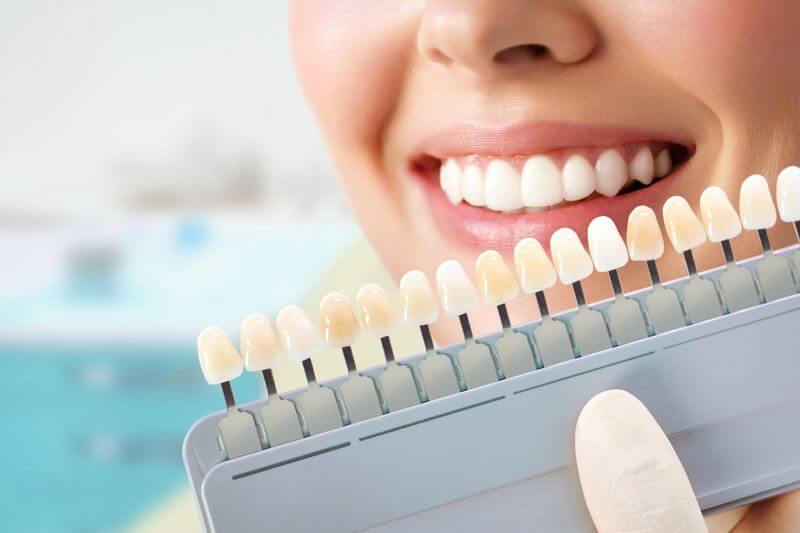
Do you like your smile or refrain from smiling? If you want to have a better smile, here is a wonderful option for you, dental veneering. Veneers not only change the shape, dimension, and color of your teeth, but they also conceal breaks and flaws.
Dental veneering is improving with new innovations. Today you don’t have to undergo so many invasive procedures with a few visits to a qualified dentist, you can easily have your new appearance.
Have a plan coming to Türkiye for Dental Veneers Treatment? Don't hesitate to contact our professional team in advance.
Click the button below to ask your questions.
WhatsApp ChatWhat are Dental Veneers? How Do They Work?
Dental veneers are a kind of cover that has the same color as your teeth and is tightly fixed on them. The materials that are used to craft veneers are usually porcelain and resin composite. The main purpose of this treatment is usually cosmetic problems like chipped, discolored, damaged, or smaller teeth. For some people, one veneer might be enough in the case of a cracked or chipped tooth, but for most, they prefer to get six to eight veneers to have a symmetrical smile. The lifetime of veneers can reach up to 20 years depending on the maintenance of the material.
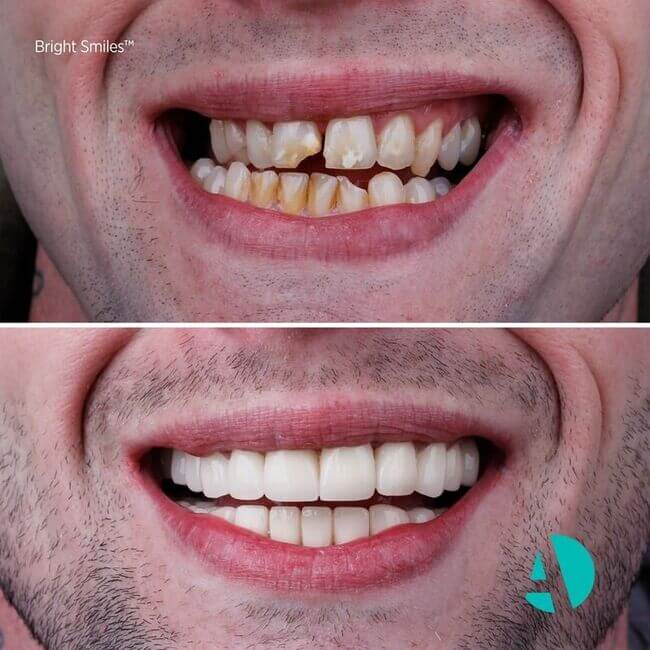
What are the Benefits of Dental Veneers?
Dental veneers are one of the most recommended solutions for imperfections in the teeth and provide long-lasting corrections for your teeth. They also have various other advantages.
Robust Teeth
Research about the veneers has proven that they strengthen teeth up to 95 percent.
Cosmetically Enhance
Veneers have a great influence on the appearance of teeth, when they are applied to the teeth they immediately change the appearance.
Whiter and Straighter Teeth
They turn the illusion of crooked teeth into straight beautiful ones.
Get Less Stain
Especially porcelain veneers are more resistant to all kinds of stains.
Same Appearance With the Natural Teeth.
No one can easily detect a good veneer if he is not a professional.
Veneers Protect The Underlying Tooth
A veneered tooth doesn’t expose to any outside effects such as pollution or malign materials and always stay clean.
Have any hesitation about dental veneers? Then no need to hesitate to contact Antlara professional team.
Click the button below to ask your questions.
WhatsApp ChatWhat is the Lifespan of Dental Veneers?
Dentists give quite broad time intervals about the life of veneers as their maintenance affects it too much. A study undertaken by US Beire in 2012 proved that the average lifespan of veneer teeth is about 10 years but with proper care, it can last up to 20 years. The cause of the failure in veneers is mostly due to structural problems such as wear and tear, fractures, and alterations on the gum line or misalignment of the teeth.
Here at Antlara Dental we guarantee our veneers, and expect them to last for 15 years, with regular maintenance, it can easily be extended to 20 years.
What are Dental Veneers Types?
Modern dental technology offers these types of veneers the most: Emax veneers, zirconium porcelain veneers, and PFM (porcelain fused metal) veneers.
Emax Veneers
E-Max veneers are lighter and slimmer than conventional veneers and crowns as they are made from lithium disilicate. Therefore, less sanding is needed while attaching them to the veneers.E-Max veneers are also more rigid and more resilient to impacts than conventional porcelain veneers. Compared to regular veneer teeth, E-Max veneers have a lifespan of up to 20 years.
Dental Veneers Treatment in Antalya, Turkiye.
Click the button below to make an appointment.
WhatsApp Chat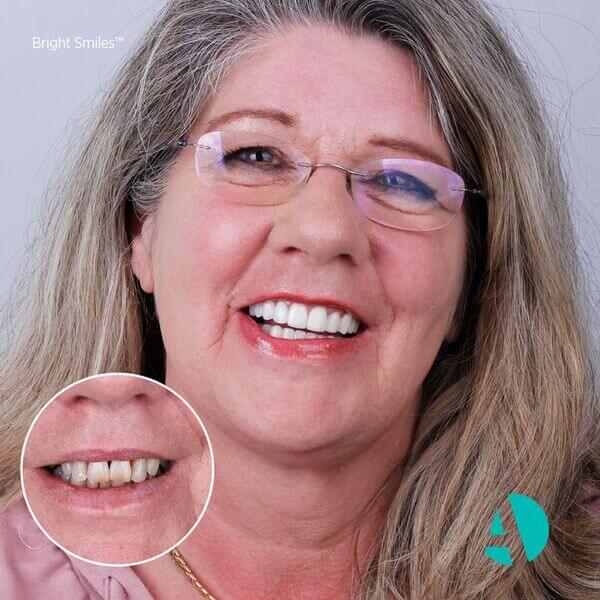
Zirconium Porcelain Veneer
With its white, sheer appearance and smooth and hard surface, zirconia veneers merge the strength of metal alloys with the natural beauty of porcelain. Zirconium veneers -which perfectly blend in natural teeth-has some certain benefits over other options, including
Durability:
The material structure of zirconia is up to two times stronger than other porcelain veneers. It can resist the pressure of chewing, corrosion, and the effects of implants of neighboring teeth. Zirconia can last more than twenty years without cracking or chipping with the right care.
Natural appearance:
Zirconia is a white, translucent, hard material with a smooth surface that has a natural appearance and combines the durability of porcelain with the strength of metal alloys. It is almost impossible to distinguish them from normal teeth.
Customization:
The way that zirconia is manufactured is so versatile—perse chemicals and different processing techniques are required for production. Its easy customization helps ensure all of the patient’s needs are met and minimizes the incapability of treatment.
No metal taste and comfort:
Zirconium provides unparalleled comfort since they are similar to your natural teeth. They make themselves forget in your mouth, and you get no metal taste from them.
Porcelain Veneers
At Antlara Dental, we have been serving our patients with 18 years of experience, and zirconium veneering is one of our most experienced areas of treatment. We are here only to combine our experience with the latest technology.
Porcelain Fused Metal (PFM) Veneers
As the name suggests, they are a hybrid version between metal veneers and porcelain and combine these two elements. Inside the PFM veneers, a metal cover is concealed by covering them with opaque white porcelain. Thus, their color is not as natural as the porcelain veneer teeth.
Feel free to ask any question about veneers.
Click the button below to make an appointment.
WhatsApp Chat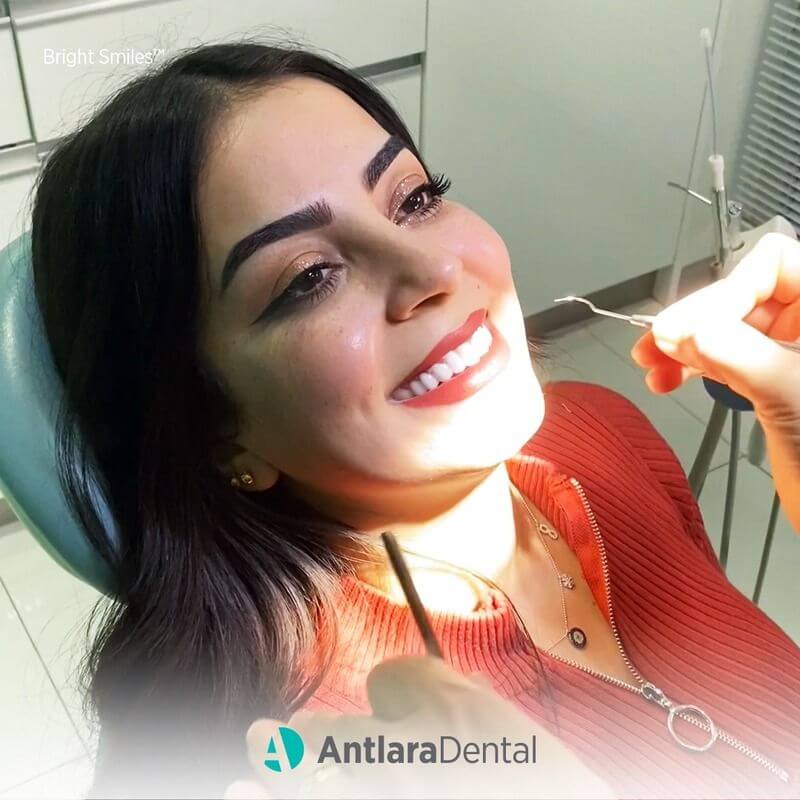
What is the Dental Veneer Process?
If you and your dentist are determined to apply veneers, you are expected to share your preference for the shape, height, width, and color of the veneer teeth. By doing so, you help ensure that you meet your objectives. The dental veneer teeth treatment usually concluded in two visits in six weeks. The whole procedure comprises several steps.
- Firstly, a local anesthetic is administered; then, with the help of a tiny rotating cutting tool known as a bur, your natural teeth are slightly scraped.
- If your treatment requires direct composite resin veneers, your dentist then applies the properly shaded composite and toughens it with a high-intensity light.
- In the case of porcelain veneers, your dentist takes an impression of your teeth from which a mold of your mouth is prepared.
- With the help of this impression, the veneer teeth are professionally crafted in a dental laboratory.
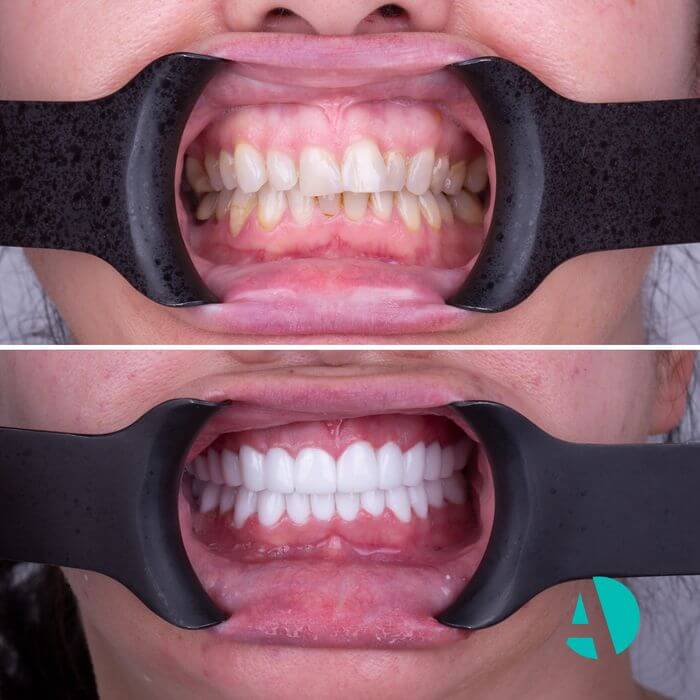
Who Is The Good Candidate for Veneers?
In general, veneers are for those who suffer from the cosmetic appearance of their teeth rather than restorative, so they should be in good dental health.
Chips and Cracks
Veneers are a good option to conceal minor chips and cracks if the overall stability of the teeth is not affected by these cracks.
Stains and Discoloration
In many cases, stains and discoloration can be corrected with whitening techniques, but some serious stains can't be corrected even with multiple bleaching. If you are complaining about this kind of stain, you can prefer veneer teeth.
Spacing and Size Issues
Veneers enhance the shape, size, and balance of the teeth. Even the misalignment problems can be corrected with porcelain veneers. With just a few veneers, the patient can seem to have a full orthodontic treatment.
Total Smile Makeovers
Veneers are also an effective means of straightening your smile as they help correct misalignments in your teeth.
You may consult us via whatsapp application whenever you are available.
Click the button below to make an appointment.
WhatsApp Chat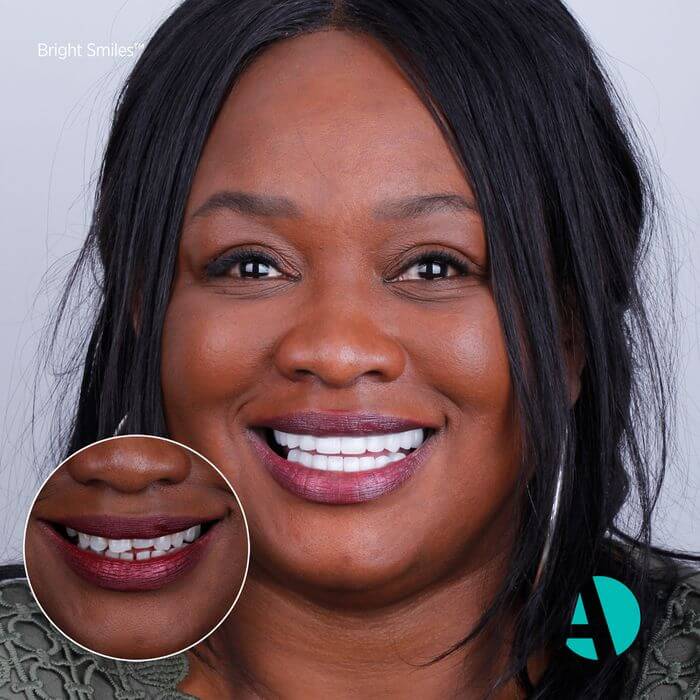
Should I Choose Composite Bonding or Porcelain Veneers?
Here we have evaluated this question from four different perspectives to help you decide on the best option.
1. Cost;
Veneers usually cost more than composite bonding, but as they last longer than composites, they save you more money over time.
2. Appearance;
Veneers can't easily get stained like bonding and can live longer, but cosmetic bonding can be shaped easily, and it is better for chipped or injured teeth.
3. Durability;
The main prospect for the veneer teeth is performance, so they can last up to 10 to 20 years or more. As for bonding, they are also strong materials but can't meet life expectancy.
4. Goals;
Each option has its own pros and cons, so depending on the correction you need, you can choose the best option that fits your dental needs. It is also possible to prefer a combination of these treatments. You can firstly try whitening. If this does not satisfy you, then veneers can be a good option.
When to Get Dental Veneers?
There isn't only one answer to this question. It is important to complete the full jaw growth to get a dental veneer; otherwise, it may result in crooked veneers. The typical age range for girls is 14 to 16, and for boys is around 18.
What about elderly people? Is there an age limit for getting veneers? Not at all but oral health should be in check before performing any kind of cosmetic dentistry. In reality, the best ages for dental veneering are from 40 to 60.
Veneers don’t require too many invasive procedures, so they are a good choice for elderly people. Almost everybody can take advantage of this treatment without risking other health problems or going under general anesthesia. For many senior patients, veneers give them renewed self-confidence as well as younger looking appearance.
Who is Best Suitable for Dental Veneers?
Those having cosmetic imperfections with their teeth, such as discolored, broken, chipped, worn down, uneven, misaligned, and gaps between teeth, can think of dental veneers as a cosmetic option. A candidate for dental veneers should have the following features;
1. Oral Hygiene Habits,
A good oral hygiene habit is a must for getting a dental veneer as veneer teeth need to be cleaned regularly like your normal teeth.
2. Severe Discoloration and Stain,
Mild and moderately stained teeth can be treated with whitening, but severely stained teeth need dental veneering.
3. Cosmetic Imperfections,
Dental veneering works wonders for imperfections such as cracks, chips, misalignments, and so on.
4. No Grinding or Clenching Problems
People having grinding or clenching problems with their teeth can’t be a good candidate for dental veneers since it causes cracks on the veneer teeth.
Don't hesitate to consult us about dental veneer.
Click the button below to make an appointment.
WhatsApp ChatHow Much Dental Veneers Cost?
Veneers are cosmetic treatments which means that they are typically not covered by insurance. The cost of dental veneers depends largely on three factors: the type of veneer teeth, the dentist’s location, and the number of veneers.
Below, we have concluded detailed cost research for each region and every specific dental veneer. The cost is given for each single veneer.
| Cost (Veneer for per tooth) | USA | UK | Europe | Turkey |
| Porcelain Veneers | $950-1700 | £750-1000 | €650-1000 | €150-350 |
| Composite Veneers | $650-1500 | £1200-1500 | €800-1500 | €100-200 |
| Lumineers | $800-2000 | £900-1000 | €650-2000 | €200-300 |
| Emax Veneers | $1000-1800 | $1000-1800 | €850-1800 | €200-300 |
Veneers Turkey Costs?
A full set of Turkey teeth veneers is between £3000- £6000, including picking you up at the airport and modest accommodation in a famous tourist seaside city. Although for dental veneers Turkey offers more advantages, the total burden will still be much lower than it would cost in Europe or the USA.
Why Dental Veneers Cheap in Turkey?
A price can only be said to be cheap if it offers the same quality as the expensive ones. Turkey is a country that should be evaluated in this context. The dental veneers price is absolutely much lower than in Europe with its high quality. Here are the main reasons for choosing Turkey as a dental destination.
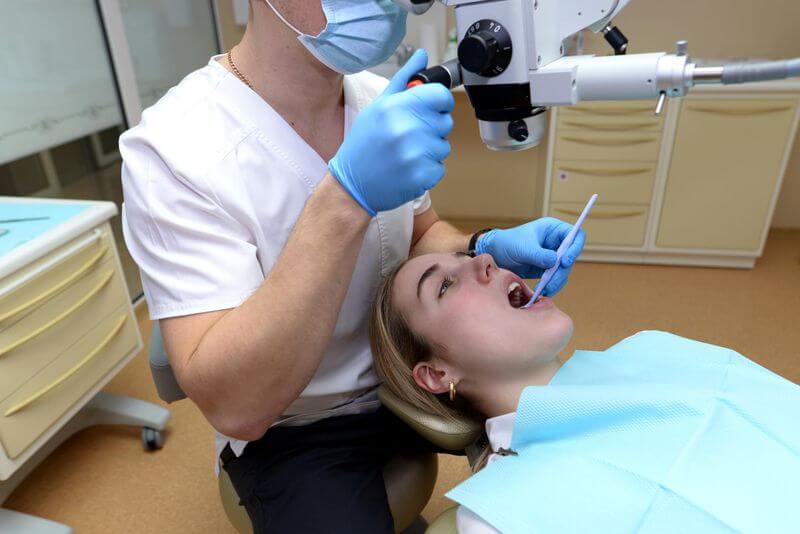
Security
If you want to have dental treatment, of course, security is the first priority. The number of tourists that visited only Antalya is 9 and half million in 2021 and it is estimated to reach 15 million in 2022. If it weren’t a secure country, is it possible for that kind of tourist influx?
Quality
Dental education along with health in Turkey has deep roots which date back more than a century. Because of this high-quality education, there is also a race between health experts which is the main cause of the quality.
The higher qualified clinics in Turkey veneers use the latest and best technology you would find in Europe or the USA. On our website, you can find all the detailed information about the brands we are using and warranty conditions.
Have any question about dental veneers? Feel free to ask.
Click the button below to make an appointment.
WhatsApp ChatHow Many Visits are Necessary for Veneer in Turkey?
Dental veneer treatment is typically done in two to three sessions and takes around three to six weeks.
Initial Consultation:
Initial consultation may not mean that you will get dental veneers since, at this stage, you will be administered a detailed examination of all aspects of your mouth. If the patient carries all requirements for veneer teeth treatment, the wax impression can also be taken at this stage. The impressions are sent to a laboratory to craft temporary veneers for teeth.
Preliminary Preparation of Teeth:
Preliminary preparation of teeth is vital to have a strong veneer. At this stage, the dentist applies minor scraping on the teeth’s enamel. Then temporary teeth, which are crafted after the first consultation, are placed.
Placement:
Placement is the last phase of the treatment. At this stage, the dentist attaches the permanent veneers to the teeth by using bonding cement and then removes the remnant from the teeth.
Dental Veneers FAQ
Dental Veneers - AntalyaSince local anesthesia is applied during the veneer teeth, you don’t feel any soreness. But after the process is completed, there could be some pain in your gums or jaw, especially if you get eight or more veneers.
Like other dental implants, dental veneers are not without risk. But many of these side effects can be ruled out as they are curable and easy to get rid of. Here are some of these side effects;
Sensitivity and Discomfort
Because of the scraping of enamel, you may experience a kind of sensitivity against hot or cold beverages or foods.
Inflamed Gums
It takes some time for your gum tissues to fuse with their new friends, the veneers. During this period, a small inflammation can be experienced.
Increased Risk of Tooth Pulp Injury:
If the dentist can’t properly remove enamel from your teeth, the remnant may die on your teeth and can only be treated with a crown. .
Veneers can be broken, but it is a rare issue. It is also uncommon for veneers to get cracked or chipped.
The maintenance of veneers is no different than normal teeth care, which requires brushing and flossing regularly. But you should avoid foods that can stain your teeth to ensure stainless teeth for a long time.
Contact us online for dental veneers and more.
Click the button below to make an appointment.
WhatsApp Chat